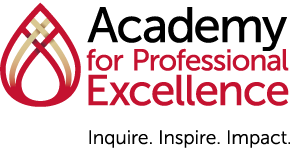Checklists and Program Tips
Learn how you can practice using inclusive language at your workplace by using, Words Matter: Academy’s Inclusive Language Principles, a tool created to empower folks to enter into conversations they might not be entirely comfortable with. It is one of many ways the Academy staff integrates anti-racist, trauma-informed, and recovery-oriented practices into our daily work, services, and interactions.
Posted In:
Checklists and Program Tips
This brief summarizes the screening for decision-making capacity including terminology and important terms to understand; an explanation of what capacity is and civil capacities; explores the relationship between capacity and abuse; and why APS professionals need to understand capacity; provides information on capacity screening including cognitive domains and screening tools; identifies research on capacity screening; research to practice highlights; and available training and resources.
Posted In:
Checklists and Program Tips
This brief outlines a menu of available Adult Protective Services (APS) trainings that APS Administrators can access for free or at a reduced cost. These training resources can be used to develop a state’s full training program with a minimum of development costs and high confidence that the trainings will meet program needs.
Posted In:
Checklists and Program Tips
Use this 9-Step Checklist to design virtual experiences that enhance learning, including considerations for timing and spacing, working with online audiences, and tips for trainers.
Source: Research Summary: Best Practices for Virtual Training (July 2020)
Posted In:
Checklists and Program Tips
Use this 9-Step Checklist to implement a successful virtual training session, including considerations for participant engagement, session duration, breaks, and more.
Source: Research Summary: Best Practices for Virtual Training (July 2020)
Posted In:
Checklists and Program Tips
These eight steps are necessary for any meeting to be effective.
Posted In:
Checklists and Program Tips
How do you ease your children back to a home and a culture that is vastly different than what they have been experiencing for 10 years? This tip sheet offers suggestions.
Posted In:
Checklists and Program Tips
This tip sheet lists the primary rights of foster youth receiving mental health services. This is a collaboration with our partners at the Department of Health Care Services to try and address the use of psychotropic medication in the foster youth community.
Posted In:
Checklists and Program Tips
This tip sheet offers a list caregivers and youth can use to ask important questions about medication. This is a collaboration with our partners at the Department of Health Care Services to try and address the use of psychotropic medication in the foster youth community.
Posted In:
Checklists and Program Tips
This handout provides a comprehensive list of child development milestones including normal physical development, activities that promote healthy growth and developmental concerns.
Posted In:
Checklists and Program Tips
This online resource provides a comprehensive list of child development milestones including normal physical development, activities that promote healthy growth and developmental concerns.
Posted In:
Checklists and Program Tips
This tip sheet offers suggestion on how to follow protocol when working with Tribal Communities.
Posted In:
Checklists and Program Tips
Suggestions on this concise list include the use of creativity, patience, preparation and planning, and respect when developing and maintaining Tribal relationships.
Posted In:
Checklists and Program Tips
This checklist has been developed to help judges determine the best circumstances surrounding placement of a child in a non-Indian home. The intention of this list is to provide guidelines that can strengthen the potential for a successful outcome.
Posted In:
Checklists and Program Tips
This document describes what is meant by “positive outcomes” from a Tribal perspective.
Posted In:
Checklists and Program Tips
This document offers practical suggestions for child welfare workers who are newcomers to Tribal communities.
Posted In:
Checklists and Program Tips


